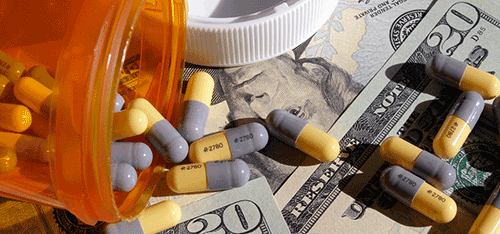Congress Must Stop $1.6B in Cuts to Hospitals by January 1
12/22/2017CONGRESS MUST PASS MCKINLEY-THOMPSON BILL (H.R.4392) AND BLOCK $1.6 BILLION IN CUTS TO 340B HOSPITALS
What is 340B?Congress created the 340B drug pricing program in 1992 to help support and sustain a health care safety net of providers that treat many low-income, uninsured and underinsured patients. The law, which has strong bipartisan support, requires drug manufacturers to sell their outpatient products to community health centers, hemophilia treatment centers, Ryan White HIV centers, as well as public and private hospitals that serve a disproportionate share of low-income patients or are located in rural areas. Congress’ stated goal is “to stretch scarce federal resources as far as possible, reaching more eligible patients and providing more comprehensive services.” How Does 340B Work?Under the law, pharmaceutical companies that wish to participate in Medicaid or Medicare must offer discounts to covered entities on outpatient drugs. These providers use the savings from these discounts to provide free or discounted care and critical health care services to those who are uninsured, underinsured, or are otherwise underserved and face limited access to care. In 2015, the Health Resources and Services Administration (HRSA), which oversees the 340B program, estimated that these discounts totaled $6 billion; this represents only 1.3% of total U.S. drug spending. Regulation Will Slash Reimbursement to 340B HospitalsOn Nov. 1, 2017, the Centers for Medicare & Medicaid Services (CMS) announced new final regulation for Medicare’s Part B Outpatient Prospective Payment System (OPPS) that includes a deep reduction in payments to certain 340B hospitals for drugs. The cut of almost 30%, which is set to take effect on Jan. 1, 2018, would single out one class of hospitals and transfer the savings to all OPPS hospitals, including for profit institutions and other non-340B hospitals that do not historically provide care to large numbers of low-income patients. Bipartisan Legislation Introduced to Block the CutsLegislation (H.R.4392) has been introduced in the House by Reps. David McKinley (R-WV) and Mike Thompson (D-CA). The bill, which has a growing number of bipartisan cosponsors including Representative Joe Courtney (D-CT), would block CMS from implementing the 340B hospital payment reduction on Jan.1, 2018. The legislation continues a 25-year history of bipartisan support for the 340B program and the providers and patients it serves. H.R. 4392 must be passed before Congress adjourns. Cuts Will Weaken the Health Care Safety Net 340B disproportionate share (DSH) hospitals represent 36% of acute care hospitals in the U.S. but provide 59% of uncompensated care. In response to a 340B Health survey, hospitals unanimously reported that the cut in payments would affect their ability to serve their low-income and rural patients including:
Cuts Won’t Lower Prices, Won’t Save Money for Medicare or SeniorsDespite CMS’ public statements:
Please support legislation to block the OPPS cuts.
| Day Kimball Hospital & 340B64%: $2,251,000: $3,200,000: $1,467,291: At DKH we use our 340B savings to:
Other CT Hospitals Affected:Bridgeport Hospital Connecticut Children's Medical Center Hartford Hospital The Hospital of Central Connecticut Lawrence & Memorial Hospital Saint Mary's Hospital The Stamford Hospital University of Connecticut Health Center Windham Memorial Hospital Yale New Haven Hospital
|



